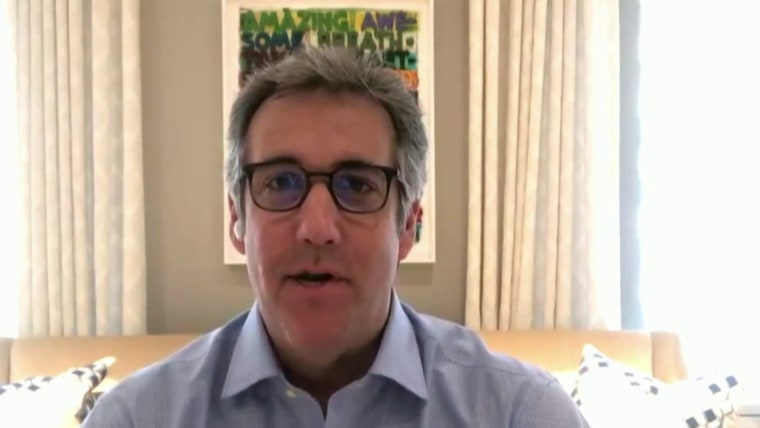
“The entire game revolves around these two men dancing around each other. The courtroom battles are like a tango, a back-and-forth exchange.”
That’s how Claire Stenger, senior narrative designer at Gameloft, describes the relationship between Phoenix Wright and Miles Edgeworth. But anyone that’s played Capcom’s Ace Attorney games probably already knew that.
The relationship between the upbeat defense attorney and the aloof prosecutor has become one of the most popular character “ships” in video game fandom. (Shipping has been around since the ’60s heyday of Kirk and Spock, and usually refers to fans’ use of artwork, fanfiction, or memes to…

An attorney on Twitter clapped back at an account closely linked to Rep. Jim Jordan (R-Ohio) that suggested Tuesday’s shattering testimony before the House select committee investigating the US Capitol riot was “all hearsay.”
The House Judiciary Committee Republicans’ account ― which names Jordan as its ranking member in its Twitter bio ― labeled the astonishing testimony from former White House aide Cassidy Hutchinson as hearsay.
“It’s literally all hearsay evidence. What a joke,” the post on the GOP account said of Hutchinson’s testimony about Donald Trump’s last days as president.
Hutchinson, an aide to former White House chief of…

IE 11 will not be supported. For an optimum expertise go to our web site on one other browser.UP NEXTGood Liars create ‘Trustworthy Trump Playing cards’ specializing in 2020 election loss
06:17‘Packing 537 days into one report’: What to anticipate from Jan 6 Committee closing report
05:02Fmr. Mayor of San Antonio on lifting of Title 42: ‘Our immigration system will not be working.’
04:35‘It is completely unsafe and we cannot stand for it’: Flight attendants communicate out in opposition to one-pilot cockpits
05:54“What I noticed and heard should not be tolerated in our nation:’…

This submit was authored by Matthew Loescher, Esq.
On this case, plaintiff George Sheetz challenged the $23,420 site visitors impression mitigation price (“TIM price”) imposed by the defendant El Dorado County as a situation of issuing him a constructing allow for the development of a single-family residence on his property in Placerville. Sheetz appealed from the judgment entered after the trial court docket sustained the County’s demurrer with out depart to amend and denied his verified petition for writ of mandate. On attraction, Sheetz contended for reversal was required as a result of the TIM price was invalid beneath each…

This publish was authored by Matthew Loescher, Esq.
Electors filed a grievance for injunctive reduction in opposition to group organizations and numerous county officers difficult the validity of group organizations’ referendum petition, which sought to incorporate poll query as as to whether a portion of land ought to have been rezoned for the aim of creating a medical marijuana cultivation facility , as permitted by the county board of supervisors. Following a bench trial and supplemental movement for abstract judgment, the Superior Courtroom, Graham County, denied electors’ request for injunctive reduction.
On attraction, Jones first argued the trial courtroom dominated…

This post was authored by Amy Lavine, Esq.
in Lepper v. Scordinothe Second Circuit Court of Appeals affirmed the dismissal of selective enforcement and class-of-one equal protection claims involving a treehouse that was built without a permit.
The court first explained that on a selective enforcement claim, a plaintiff must show that “(1) the person, compared with others similarly situated, was selectively treated, and (2) the selective treatment was motivated by an intention to discriminate on the basis of impermissible considerations, such as race or religion, to punish or inhibit the exercise of constitutional rights, or by a malicious or…

This post was authored by Tyler Doan, Esq.
Cook Communities (Cook) bought roughly 32.6 acres of land in Hall County to build approximately 200 attached townhomes. At the time of purchase, the land was zoned for agricultural housing. Cook sought to have the zoning map changed and the property rezoned as planned residential development. Cook argued that a denial of its request would be “an unconstitutional restriction on the use of the property” and “abolish or damage [its] property rights” without fair and just compensation in violation of both state and federal constitutions. In January of 2022 the local planning…

This post was authored by Sebastian Perez, JD
The question before the Court of Appeals of Georgia (the “Court”) was at what point a landowner had vested rights in real property where Plaintiff purchased the subject property (the “Property”) to develop 9,000 square foot lots when the county’s zoning code (the “Code”) allowed for such density at the time but was later amended to require larger sizes. After the county, where the Property was located, passed, and extended a moratorium on processing land disturbance permits, the Plaintiff’s application to develop the Property was returned due to the moratorium. Plaintiff sought…






